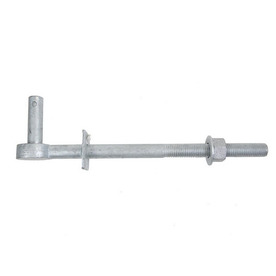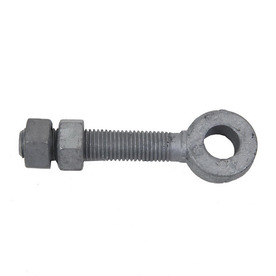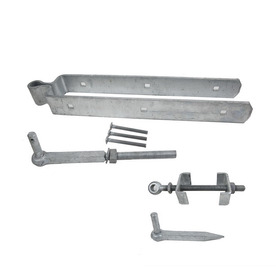The thing I like about the screws is that when I make the inevitable mistakes that I do, with screws it is easy to correct the mistakes. Sometimes with nails (depending on the type of nails and the amount I use) it involves destroying what has previously been done instead of being able to repair or re-purpose the materials.
Don't get me wrong, I have 4 different air powered nail guns, and when something involves doing a lot in a short time, the nail guns win hands down. But for small projects and stuff I am designing on the fly, a rechargeable impact driver and screws are my "go to" tools.
My sentiments exactly. I don't use very many nails, except for certain projects like installing asphalt shingles or clapboard siding or oak flooring, etc. 90 percent of the time I use screws. I'm a tool junkie, and my nail guns often gather dust, but my impact drivers get a workout...heck, they hardly sit long enough to cool down. Over the years, I've learned a fair amount about fasteners, and the selection and application of something as prosaic as a screw can often involve a number of factors in the decision-making process. Whenever I've taken the time and effort to choose the best fasteners for the job and install them correctly, it has paid off.
For pressure-treated dock decking in a freshwater environment, especially when using lumber treated with one of the ACQ treatments, I like to use GRK PHEINOX™ R4™ Stainless Steel screws. If I recall, those are type 305 stainless.
(NOTE: In a saltwater environment, I would strongly recommend finding a source of deck screws made of type 316 stainless, which is less subject to corrosion in sea water than types 304 or 305).
I've used a few thousand of the GRKs for various projects, including a couple of docks, and they work great. That said, I've successfully used other brands as well. When working with PT lumber, which is often one of the southern yellow pines (SYP), I like to predrill the boards with an appropriate size pilot hole and sometimes a shank hole as well, depending on the brand and type of screw I'm using. Despite being a 'softwood,' SYP can have pretty hard latewood rings and is sometimes called a 'hard pine.' I've found that in general, predrilling seems to make installation easier, with fewer twisted screws or cracked boards. In softer woods, predrilling might not always be required, although I still do it most of the time.
I've observed that the GRK screws seem less prone to twisting than some other brands that I've used. It seems to me that SYP PT wood can sometimes be pretty 'grippy' compared to some other softwoods, requiring more torque to install screws, which is one reason (besides the hard latewood rings) that I like to predrill my PT project lumber. Still, there's no guarantee that you won't occasionally twist the shank of a screw when installing PT wood decking on a PT frame. However, I don't recall breaking a single deck screw in the last dock deck that I built. Nor have any snapped since then.
Another reason I usually prefer screws over nails is that I'm not always the best shot with a hammer, and if I don't hit my thumb, I sometimes dent the wood, which can be embarrassing.

PT wood, which is usually wet (unless you use KDAT - Kiln Dried AFTER Treatment), will shrink quite a bit in most situations, and if it's fastened with screws it's an easy matter to give each screw an extra cinch with a Torx screwdriver after the wood has stabilized for a while.
And, as snrub said, mistakes are easier and quicker to fix when using screws than with nails.
A few more thoughts about selecting screws for wooden decking and about predrilling: I try to select screws with a 'grip length' roughly equal to the thickness of the deck boards that I'm screwing down to the joists. This grip length might be a completely unthreaded portion of the shank, or there might be some special threads on that portion of the shank that are different from the rest of the threads and designed to interact with the wooden deck boards. The chances are you'd be using what might be called 'production' screws rather than 'traditional' wood screws, in which case the shank clearance hole may often be the same size as the pilot hole, so in many cases only one drill bit should be required. The term 'production wood screw' might not be a universal term, although I've seen/heard it in various places. I've seen some charts on the Internet that provide suggested pilot and shank hole sizes for both production and traditional wood screws and for hardwood vs. softwood. Here's an example of such a chart, whose link I found on the Wood Magazine website. It includes silhouettes of typical traditional and production wood screws, so you can see the difference, along with pilot and shank hole sizes.
http://images.meredith.com/wood/images/pdf/screwchart.pdfHowever, I can't say if the hole sizes listed in this or any other chart would be appropriate for every screw product, material, or other situation. You should still contact the specific screw manufacturer to see exactly what they recommend in terms of pilot hole sizes (and shank clearance hole sizes if needed). While you have their attention, you could ask them what they think would be the most appropriate fastener for your application. That might sound like nit-picking, but a five-minute phone call can avoid a lot of problems.
By the way, some screws may be manufactured with a feature that is supposed to eliminate the need for drilling pilot holes, or maybe eliminate the need in some materials and not others. While I think it's a good feature, I'm not convinced that such a feature is always a perfect substitute for pilot holes. In some situations, maybe. That's something else that you could ask about when contacting a manufacturer. I've discussed this with some professional carpenters, but have not heard consistent opinions about it.


